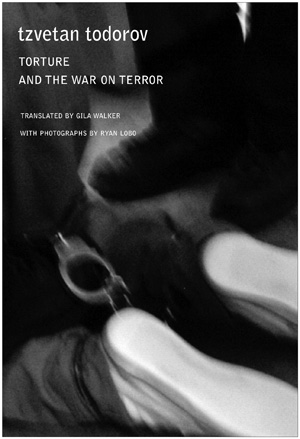Torture and the War on Terror
Tzvetan Todorov
Translated by Gila Walker
With Photographs by Ryan Lobo
4.25 x 6.25 inches, 78pp, 30 halftones. August 2009
ISBN : 9781906497361
Rs 395.00 (HB)
$8.50 (HB)
£12.00 (HB)
Though the 2008 election of Barack Obama and his subsequent signing of the executive order to close the prison at Guantanamo Bay signaled a considerable shift away from the policies of the Bush era, the lessons to be learned from the war on terror will remain relevant and necessary for many years to come. In the aftermath of 9/11, the U.S. government approved interrogation tactics for enemy combatant detainees that could be defined as torture, which was outlawed in Europe in the eighteenth century as well as prohibited by the Geneva Conventions and the United Nations Convention Against Torture. In conjunction with these policies, the Bush administration vocally defended torture as a necessary tool in its war on terror.
Here Tzvetan Todorov argues that the use of the terms “war” and “terror” dehumanize the enemy and permit treatment that would otherwise be impermissible. He examines the implications and corrupting impact of the attempt to impose “good” through violence and the attempt to spread democratic values by unethical means. Todorov asks: Can violence overcome violence? Does the need to protect one’s own country justify violating human rights? Invalidating one by one the political and ethical arguments in favor of torture, Todorov likens institutional torture to a cancer that is eroding our society and undermining the very fundamental democratic ideas of justice and right.
Torture and the War on Terror is a significant work in ethics, human rights, and political and social history by one of the world’s leading intellectuals, and its arguments will be influential in shaping our policies to come.
Tzvetan Todorov’s many writings include The Poetics of Prose, The Conquest of America, Mikhail Bakhtin: The Dialogical Principle, Facing the Extreme: Moral Life in the Concentration Camps, On Human Diversity, Hope and Memory, Imperfect Garden: Lessons from the Twentieth Century and The New World Disorder: Reflections of a European. He is Director of Research at the Centre National de la Recherche Scientifique in Paris and has taught widely in the English-speaking world, notably in Harvard, Yale, Columbia and University of California.
Gila Walker is the translator of more than a hundred works in Frence, including texts by Jacques Derrida, François Julien, Hubert Damisch, Thierry de Duve, Georges Didi-Huberman and Alain Fleischer. She divides her time between her homes in New York and in the Southwest of France.
Social History
Political Philosophy
French List

 Buy (HB)
Buy (HB)